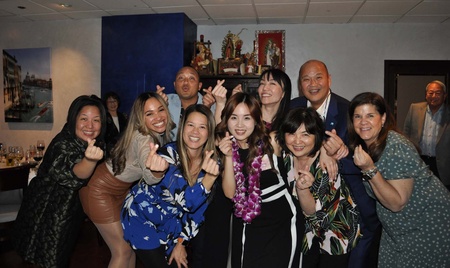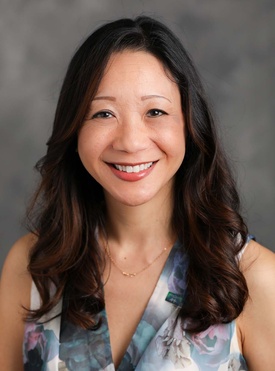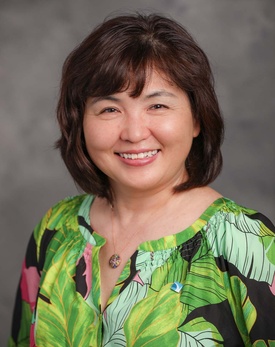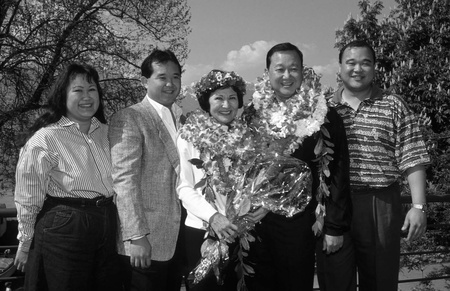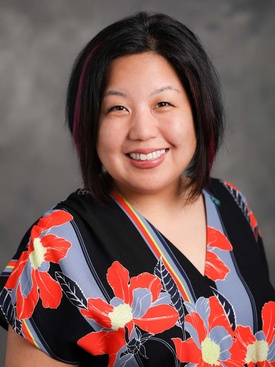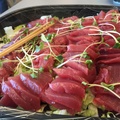As a Japanese American Sansei who has trudged through every practical definition of senior citizenship, I am gratified to have been able to witness the greater acceptance of things unique to our community. While the first step in fighting institutional discrimination has been legislative and judicial, the next phase to overcome is the societal bias against our cultural traditions. As with many Sansei, I felt some embarrassment as a kid when my hakujin friends found out my family ate raw fish with hashi.
Today, Japanese fare, especially sushi, is considered one of the great cuisines, and who doesn’t know how to use chopsticks? Similarly, the words “made in Japan” in the immediate postwar were a pejorative description for cheap and poorly constructed products. That was until Akio Morita shattered that prejudiced attitude by ensuring that the company he co-founded, Sony, would produce only the best electronic products in the world.
Likewise, our community institutions have been known to bring different perspectives and new methods to their work that mainstream organizations never considered or even rejected. When I worked at the Japanese American National Museum, I remember Dr. James Hirabayashi, the Museum’s first Chief Curator, advocating the use of the first-person point of view as a method to properly share history. At the time, American museums and educational institutions insisted on having scholars interpret the stories of a group, pushing the community insider perspective aside. Today, the American Alliance of Museums (AAM) states that museums must go beyond their “traditional focus on collecting, preserving and interpreting” and work in support of “inclusive and resilient communities.”
This brings us to financial planning and services. I suspect most of us would not anticipate that there could be a cultural component to an industry that uses terms like wealth accumulation, wealth preservation and wealth transfer. But as I discovered recently, The Pacific Bridge Companies (TPBC) not only incorporates Hawaiian cultural values in its internal operations, but it extends them to their advisors and their clients.
To understand how cultural values could be implemented as business practices, I interviewed three employees of the company whose headquarters is in Monrovia: Stephanie Nagami, Head of Marketing and Distribution and President of Pacific Bridge Insurance Services; Sheri Chan, Ambassador of Aloha and Creator of Magical Experiences (event planning); and Hozumi Hanada, Head of the Japanese Division and President of Pacific Bridge Wealth Resources.
According to Chan, the Pacific Bridges Companies’ main business is in support of financial advisors as they help their clients here in the U.S., in Asia and around the globe. “We collaborate with financial advisors and other professionals to access expertise and services they may not have available in their own jurisdictions,” Chan explained.
Added Nagami, “For example, we work with tax consultants in Japan, bankers in Hong Kong and more. In the U.S., we help insurance agents and investment advisors. TPBC’s vision is to help financial advisors guide their clients anywhere in the world their lives may lead.”
Hanada exemplifies the overseas relationship to the company. She noted her job is “to help Japanese speakers with their planning and to help them financially navigate the world around them as best we can. Each country’s financial systems vary greatly and require unique, case-by-case attention to provide advisors and their clients with what they need, often in a combination of TPBC’s five areas of focus: insurance, investments, banking, tax and the law. We seek financial professionals in every area to help our advisors help their clients.”
TPBC’s practices stem from their core values, which are expressed through five Hawaiian words: Mahalo, Aloha, Ohana, Pono, and Imua. Anyone who has visited Hawaii probably has encountered the first three terms, and TPBC interprets them specifically as guidelines on how they interact with one another, their advisors and their clients.
For TPBC, mahalo means thank you, and is about having a heart of gratitude. Aloha can mean hello and goodbye, and involves how one interacts with others, especially by treating them with respect and care. Ohana is another word for family, and TPBC additionally uses it to mean having frank relationships with accountability, and, at times, the responsibility to bring up difficult conversations because you care about the person.
The other two values are equally relevant. According to TPBC, pono means “to do the right thing. It means to live with righteousness - to do the right things for the right reasons.” Imua essentially means moving forward with purpose and “leaving complacency behind. It requires added perseverance, motivation, and courage to make things better.”
Having grown up in Japan and graduated from journalism college, Hanada said that she was initially not that familiar with the Hawaiian values and that Japanese cultural values differ in matters such as family. Hanada observed that the concept of pono reminds her of the Japanese samurai concept of bushido. Imua was the value she identified with growing up in Japan. “My life is more imua-driven,” she noted. “If you do your best, good things happen. I want to face danger. Imua was familiar to me.”
Chan, who helps to plan and execute corporate events as well as internal and external gatherings such as non-profit events and education symposiums, revealed, “A lot of our values align with what I personally believe in. Gratitude is essential. By approaching life with gratitude, we can approach all situations with aloha and special care. We use (our core values) in our day-to-day work and share them with our partners. For example, business emails can be impersonal, so we create very individualized, personal messages. We answer the phone with ‘Aloha!’ After a while, people respond in kind. I remember one of our partners saying of our staff, ‘You are some of the warmest people I’ve met.’ “
In terms of financial planning for individuals, TPBC has developed its unique discovery process to help their clients ask themselves hard questions they might not have considered. Among them, what’s important about money to them and what do they hope for their families? This is the starting point for developing a financial plan.
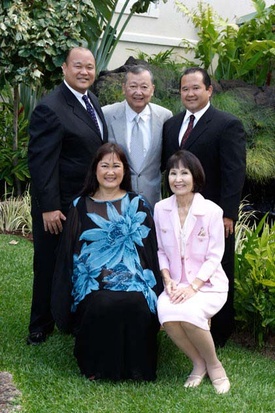
Having been with the company through the last financial crisis, Nagami finds the ideals of taking care of each other essential for any success. She credits the company’s founder, Stephen Kagawa, for “taking the idea of ohana to a new level. It works for your internal staff, but how do you make that work with your advisors and their clients?” she said.
Nagami pointed to one of the company’s guiding principles: being non-competitive. TPBC “values the unique talent and perspectives of other professionals and works cooperatively to find the best financial alternatives. Instead of competing with others in the industry, TPBC seeks to collaborate to do so.” As an example, TPBC annually brings together multiple insurance companies representatives to celebrate the collective wins as an ohana – not as individuals, but as a family. “We can do more for our clients together than we could ever do alone,” says Nagami.
Kagawa’s innovative ideas follow in the footsteps of his family starting with his grandfather Lawrence Takeo Kagawa, known as L.T. As a young life insurance executive, he saw that his industry overcharged or refused to insure people of color under the false premise that they had shorter life spans.
In the 1930’s, armed with the correct data, L.T. traveled to San Francisco and, without an appointment, waited in the lobby for A.P. Giannini, founder of Bank of America and Occidental Life Insurance (eventually Transamerica Occidental Life Insurance). Giannini accepted L.T.’s findings and together they abolished discriminatory underwriting practices involving people of color.
Stephen’s great uncle, Yoshinobu Kagawa, was also influential as the first American employee of the Sony Corporation and advisor to Akio Morita in the 1950s. The Kagawa family encouraged Morita to come to the U.S. to better understand the American people as future customers and in the 1960’s, Akio moved to New York and opened Sony Corporation of America.
L.T. and Yoshinobu in the same period broke new ground by selling insurance to U.S. military and later U.S. expats living in Japan. Stephen’s father, Siegfried, became president of Occidental Underwriters of Hawaii in 1971 and avidly supported the Boy Scouts, the Bishop Museum, and the Japanese American National Museum.
Not surprisingly, Stephen entered what was essentially the family business, but realized after a while that he wanted to do even more to help clients. Nagami recalled that what changed was a conversation Stephen had with a woman who had lost her husband suddenly. Fortunately, her husband’s life insurance policy provided the financial safety net that allowed the woman to raise her family. Her expression of gratitude for that policy changed Kagawa’s attitude toward financial services and their importance in people’s lives.
Having moved into financial planning, Kagawa discovered that his profession retained very few newcomers. One survey of novice financial planners, Stephen explains in lectures, revealed that only 8% of those in the field remained after three years. Given the amount of time and effort it took to be successful, Kagawa recognized trust between advisors and clients needed to be rebuilt to create lasting relationships and longevity in the business. There needed to be something more meaningful to keep planners in the industry.
Kagawa’s epiphany was embracing his feelings of aloha, having a heart of mahalo (having gratitude to help people) and embedding them into how he approached his profession on a daily basis. Part of that change in mindset was getting to know his potential clients first and then using a discovery process to find how he could help them reach their goals. According to an article from one of the financial industry’s premiere organizations, the Million Dollar Round Table’s (MDRT), Kagawa made the jump by “seeking joy in his own life and listening to the hopes and goals of clients and prospects instead of guiding them according to his own biases.”
In changing the paradigm, the Pacific Bridge Companies are open to all sorts of different approaches. Hanada, as mentioned, trained as a journalist, Chan taught English to Speakers of Other Languages (TESOL), while Nagami worked in event planning for the Go For Broke National Education Center (GFBNEC) before joining TPBC. Because of the financial crisis and the 2011 Tsunami disaster, Nagami said, “I learned every aspect of the business. We’re an entrepreneurial organization. It’s not just about skills, but behavior.” Similarly to how they prioritize their clients’ goals, staff are encouraged to pursue their career passions. “New staff have told me that they never have worked for a company that actually cared about them as people,” Nagami offered. “I know Stephen would do anything for our staff. There’s so much respect for a leader who goes all in.”
As with JANM’s first-person perspective priority toward history, and as an entrepreneurial organization, TPBC’s emphasis on understanding what is most important to the client and their clients’ needs vs. wants outside of finances has become an industry standard.
According to an article in eMoney (“An Abbreviated History of Financial Planning” by Steve Levis, June 30, 2021), “A new, more agile generation of investors is emerging and seeking holistic advice that humanizes money management by acknowledging the other, softer dimensions of their lives—feelings of belonging, personal values, mental health, and physiological needs—to achieve financial actualization. To drive revenue, they must simultaneously grow their book of business while forging a deeper connection with each of their clients in an effort to meet the heightened expectations of today’s investors.”
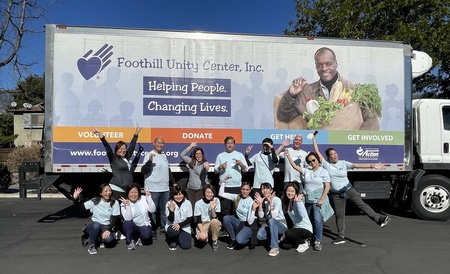
Not surprisingly, Kagawa’s profile in his industry has risen greatly. In 2020, he was honored by the U.S. National Association for Insurance and Financial Advisors (NAIFA) as its Diversity Champion. Kagawa became the first person of Asian ancestry to chair MDRT’s Top of the Table Advisory Board and served as a Global Council Member in 2022.
As TPBC celebrates its 30th anniversary, all of this can be traced to the integrating of the Hawaiian values into Kagawa’s life and his profession. While the mainstream industry, according to eMoney, may embrace “Holistic planning. . . to help the client achieve general wellbeing, long-term prosperity, and ultimately, fulfillment,” TPBC is still special in its approach to its staff and partners.
“It’s a gift,” Nagami shared. “We aren’t owed anything, so we’re grateful to be able to help people. To share our aloha. In helping people, we have a great opportunity and a great responsibility.”
© 2023 Chris Komai


